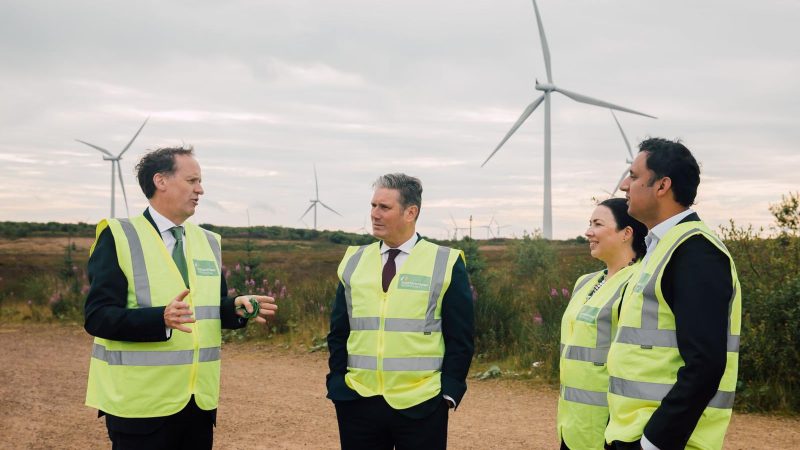
Over the course of 2024, billions of people will be eligible to vote in national elections. The combined population of countries heading to the polls – starting with Taiwan last week – is about four billion, more than half the total population of the planet.
At the same time, action on climate is being mainstreamed like never before as many countries – including the US, leading members of the EU and China – place green investment at the heart of their future industrial strategies and plans for growth. And all of this off the back of a global COP climate summit that has finally acknowledged the need to transition away from fossil fuels as part of our climate goals.
While it is looking extremely likely that the UK will be included in those going to the national polls in 2024, unfortunately, for the first time in years, the discussion on how we transition to a low-carbon economy has become a political dividing issue. And looks set to remain that way in the run-up to the general election.
Some questions about the green prosperity plan remain unanswered
Labour’s answer to competing in this global race, the green prosperity plan, is designed to help Labour meet two of its key election missions: to have the highest sustained growth in the G7 and to become a clean energy superpower by 2030.
Like any policy in an election year, it has already received its fair share of scrutiny. But the majority of this scrutiny so far has been focused on the minutiae of the spending amounts and the divides in political approach both between, and within, political parties. Some of the big questions that need to be answered go ignored.
Increased cost of living and high energy bills, along with stagnating growth, are at the forefront of people’s mind as the winter cold bites. The green prosperity plan is Labour’s opportunity to take these anxieties head on. It is the UK’s chance to keep pace with our international peers and demonstrate a new way to manage an economy, with working people and communities at its heart.
Our essay collection shows the wide base of support for the plan
Labour Climate and Environment Forum (LCEF) has published a series of essays that showcase the wide range of benefits that a well-designed, well-supported green industrial strategy will bring to people across the whole of the UK.
The essays in the collection show the wide base of support for such interventions that exists at all levels across the labour movement. From MPs and peers, to unions, councillors, MSPs and candidates for the next general election. The essays cover issues from renewable energy in Scotland to the manufacturing base in Wales, from improving innovation in the South West to unlocking the investment potential of the City of London.
Sarah Boyack MSP outlines how energy security will benefit those communities that need it most, while Roy Rickhuss from Community union upholds that Britain’s workers will be the beating heart of a green industrial revolution.
Steve Reed MP shows how the UK can regain its global nature leadership and Baroness Young underlines that all of this will only be possible through strong political leadership both at home and on the international stage.
Done right, the plan could have many benefits for the UK
At the heart of the collection is a recognition that as well as the core outputs – improved energy independence, the lowering of energy bills, the creation of jobs across all regions and nations – comes a vast array of other benefits: developing the UK’s world-leading innovation; improving working conditions; providing more support for small businesses and enterprises; unlocking private finance; and cleaning up our dirty air and water.
Most importantly, if done right, the plan will identify and target the underlying inequalities that still exist across our society, putting more power into the hands of communities and working people who know what is best needed to improve their lives.
Discussions on the green prosperity plan will no doubt continue over the coming months. But in all of these discussions, let us not forget the deep, entrenched issues within the UK economy and society that desperately need addressing.
A thriving UK that is energy independent with strong growth will not just happen by accident.
If done right, the green prosperity plan will unlock private investment, give power to our communities and create jobs in the areas that need them most.
The fact that it will also allow us to tackle the climate emergency means that for voters, and for Labour, it’s too good an opportunity to pass up.




More from LabourList
‘Tackling poverty should be the legacy of Keir Starmer’s government’
‘The High Court judgment brings more uncertainty for the trans community’
‘There are good and bad businesses. Labour needs to be able to explain the difference’